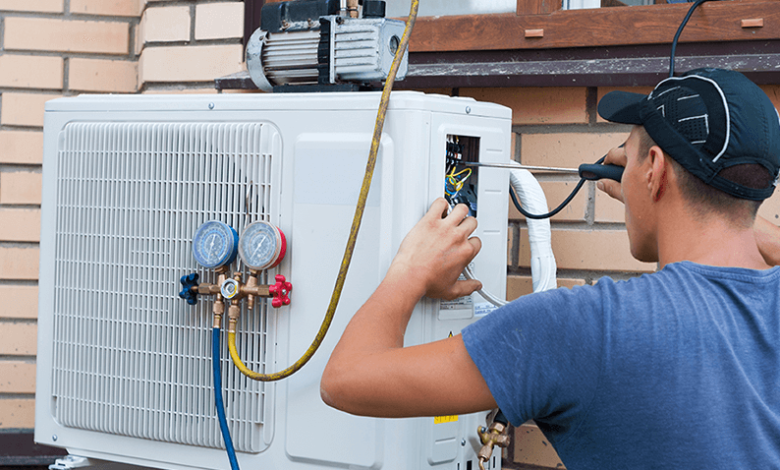5 HVAC Issues You Can Catch Before They Cost You Big

Your HVAC system works year-round to keep your home comfortable, but issues often develop gradually, giving warning signs before major failures occur. Catching these problems early can save money on repairs and prevent breakdowns during extreme weather. Here are the most common HVAC issues and their warning signs.
Reduced Airflow: When Your System Struggles to Breathe
Poor airflow is one of the most frequent HVAC complaints, and it often signals underlying issues that need immediate attention. When air isn’t moving properly through your system, every component has to work harder to maintain your desired temperature.
Signs to Watch For
You might notice that some rooms feel stuffier than others, or that it takes longer for your home to reach the temperature you’ve set on the thermostat. Weak airflow from your vents is another obvious indicator. Sometimes you’ll feel air coming out, but it’s barely a whisper compared to what it used to be.
Common Causes
Blocked air ducts, dirty filters, or failing blower motors typically cause airflow problems. Sometimes the issue is as simple as furniture blocking a vent, but it could also indicate damaged ductwork or a motor that’s on its last legs.
See also: Safety at Home Begins With Simple Maintenance
Strange Noises: Your System’s Cry for Help
HVAC systems should run relatively quietly. While some operational sounds are normal, new or unusual noises often signal mechanical problems that need professional attention.
What Different Sounds Mean
A grinding noise usually points to motor bearing problems or issues with the blower wheel. Squealing or screeching sounds often indicate belt problems or motor issues. Banging or clanking noises could mean loose or broken internal components are rattling around inside your unit.
Clicking sounds during startup and shutdown are typically normal, but continuous clicking might suggest electrical issues or a failing thermostat relay.
When to Act
Don’t ignore strange noises hoping they’ll go away. Most mechanical sounds get progressively worse and can lead to complete system failure if left untreated.
Unusual Odors: Smells That Signal Trouble
Your HVAC system shouldn’t produce strong odors. When it does, those smells can tell you a lot about what’s going wrong inside your unit.
Different Smells, Different Problems
A musty or moldy smell usually indicates moisture problems, possibly from clogged drain lines or mold growth in your ductwork. This isn’t just unpleasant—it can affect your indoor air quality and health.
Burning smells could mean electrical problems, overheating components, or dust burning off after the system hasn’t run for a while. While dust burn-off is normal when you first start your system for the season, persistent burning smells need immediate attention.
A rotten egg smell might indicate a gas leak, which requires emergency professional service. Never ignore gas odors.
Inconsistent Temperatures: Hot and Cold Spots
When some rooms feel like a sauna while others feel like an icebox, your HVAC system is telling you something’s wrong. Inconsistent temperatures throughout your home can indicate several different problems.
Possible Causes
Ductwork issues are a common culprit. Leaky ducts allow conditioned air to escape before it reaches its destination, leaving some areas under-heated or under-cooled. Damper problems can also create temperature inconsistencies—these adjustable plates in your ductwork control airflow to different areas of your home.
Sometimes the issue lies with your thermostat location. If it’s placed near a heat source or in direct sunlight, it might not accurately read your home’s overall temperature.
Impact on Comfort and Costs
Temperature inconsistencies don’t just affect comfort—they force your system to work harder and run longer, driving up energy costs while putting extra wear on components.
Water Leaks: Moisture Where It Doesn’t Belong
Water around your HVAC system is never normal and always requires prompt attention. Even small leaks can lead to significant problems if ignored.
Common Leak Sources
Clogged condensate drains are the most frequent cause of water leaks. These drains remove moisture that your system naturally produces during operation. When they back up, water has nowhere to go except onto your floor.
Frozen evaporator coils can also cause water problems. When ice builds up on the coils and then melts, it can overwhelm your drain system and cause leaks.
Why Quick Action Matters
Water damage can be expensive to repair, and moisture creates perfect conditions for mold growth. Address any signs of leakage immediately to prevent these secondary problems.
How to Spot Issues Before They Become Disasters
Regular Visual Inspections
Walk around your HVAC equipment monthly. Look for obvious signs of wear, corrosion, or damage. Check for water puddles, ice buildup, or debris around your outdoor unit. This simple habit can help you catch problems early.
Monitor Your Energy Bills
Sudden spikes in energy costs often indicate HVAC inefficiency. If your bills jump without corresponding changes in usage or weather, your system might be working harder due to an underlying problem.
Check Air Filters Regularly
Dirty filters force your system to work harder and can lead to various problems. Check filters monthly and replace them according to manufacturer recommendations—usually every 1-3 months depending on the type and your home’s conditions.
Pay Attention to Your Thermostat
Note how often your system cycles on and off. If it’s running constantly or cycling too frequently, something might be wrong. Also watch for temperature swings—your system should maintain relatively consistent temperatures without dramatic fluctuations.
The Value of Professional Maintenance
While homeowners can handle basic maintenance tasks like filter changes and visual inspections, professional maintenance catches problems that aren’t visible to untrained eyes. A qualified technician can spot worn components, measure system performance, and make adjustments that keep everything running efficiently.
Annual maintenance visits from an HVAC company like that in Herriman typically include cleaning, lubrication, safety checks, and performance testing. These comprehensive inspections often identify minor issues before they become major repairs.
Conclusion
Your HVAC system is a major investment in your home’s comfort. Catching problems early can extend its lifespan, maintain comfort, and prevent costly repairs. Stay proactive with regular maintenance and inspections to avoid system failures.





